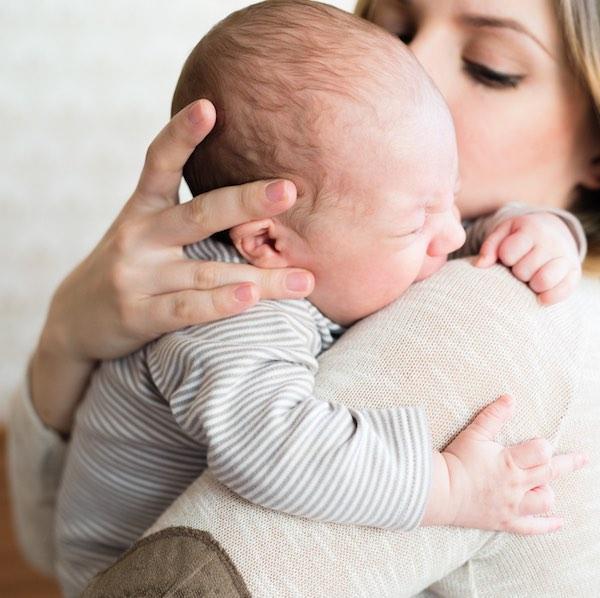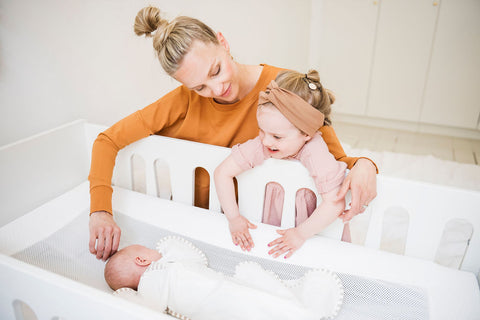Before having my first child, I was told that the babies cry a lot, maybe even all the time. Even though I had read articles and books about the babies’ cry beforehand, I realized everything only when I had my own baby crying in my arms. However, you learn fast to recognize what is the reason for your baby’s tears!
Even though my kids are already older and chatty, I recognize their cry because of pain in a nanosecond. The cry is usually sudden, shrill and fast. The tone of the cry is hasty and demanding, clearly evolution has shaped a way to ask for help and express distress.
Reasons why babies cry:
Even though there are many reasons for your baby’s tears, there are four main reasons for crying: a cry because of hunger, pain, fear or irritation. I listed a few signs to help you to recognize these!
I’m hungry!
The cry is very rhythmic: cry, inhale, cry, inhale, silence, inhale. Whistling sound is often heard when your baby breathes in.
Your baby is probably hungry if 2-4 hours have passed since the last feeding. Newborns can cry because of hunger almost right after feeding, because their stomach is very small, just a size of a grape.
I’m in pain!
If your baby cries because of pain, his/her eyes are wide open almost all the time. A sudden loud cry communicates pain!
I’m scared!
If your baby is scared, she/he will cry with eyes wide open. The cry will grow in volume until it reaches the maximum.
I’m irritated!
If your baby is crying because of irritation, his/her eyes are wide open or half closed. The cry will build in volume, becoming very loud.
The reason for your baby tears can also be a wet diaper, discomfort, need for attention, illness or if they are too hot or cold. If you think that your baby is too hot, check his/her neck if it's sweaty. You should also check the neck if you think your baby is too cold. If you think your baby is sick, take him/her to the doctor.
All babies cry. Your baby can cry without any reason. A colicky cry isn’t due to hunger, pain, fear or irritation. However, sometimes colic can cause stomach pain!
What to do when your baby cries?
Babies' cry usually worries parents. However, the crying is your baby’s way to communicate, evoke sympathy and ask for help, because they don’t know how to speak yet. Babies also express their negative feelings through crying.
The most important thing is to learn to respond your baby’s cry in the right way and as fast as possible in order to develop a secure attachment bond. Crying can be stressful for parents, but you should think the cry is always a message from your little one.
We all have been crying babies, and at some point, the crying will start to decrease, and you may even get some smiles!
When your baby cries, it’s important that you are near and as calm as possible. You will learn to recognize the reasons for your baby's tears in a different way when he/she grows.
5 ways to soothe your crying baby
1. Be calm!
The most important thing is that even though the tiredness and worry make you feel stressed and anxious, you will stay calm. Your baby will sense your mood, so if you are calm yourself, there is a better chance that your baby will soothe.
2. Remember the physical contact with your baby
The first thing to do when soothing your crying baby is to pick your baby up or gentle caress your baby’s back. Skin-to-skin contact is very important to your little one.
3. What is the reason for your baby’s tears?
There is always some reason why your baby is crying.
- Is the diaper wet or dirty?
- Has your baby fever?
- Is your baby in pain? (loudly cry with eyes tightly closed)
- Is your baby tired?
4. Ask for help
A crying baby can be overwhelming both mentally and physically for parents. Parent’s own wellbeing is very important! Parents should talk to each other and work together for a common goal. Don't hesitate to ask your friends and relatives for help!
5. Try the soothing tricks for your baby
Every baby is individual but often music, humming, stroller walk or even being in a car can soothe your fussy baby.
Also rocking has a soothing effect on most babies. You can rock your baby e.g. in your arms while you walk around, in a rocking chair or in a baby swing. And we also have one option for you: The LullaMe self-rocking baby mattress continues the rocking movement, when your own hands get tired. Do you know that we have 14-day trial also available?
The writer is Ilona Bessonoff, a mother of two children.





Leave a comment: